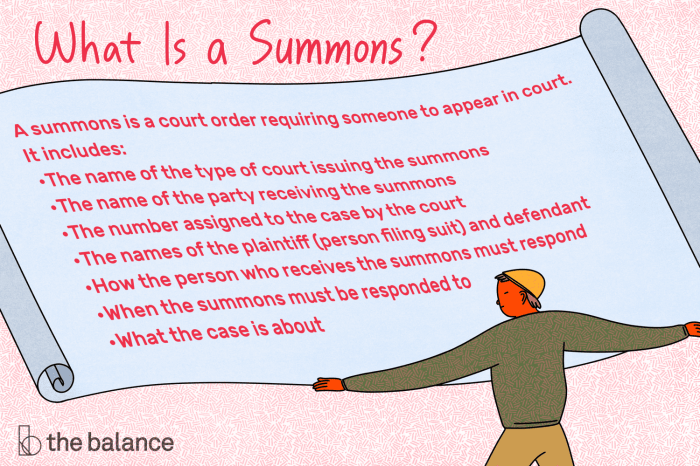Refused to receive summons philippines – Refusing to receive a summons in the Philippines carries significant legal implications and consequences. This comprehensive guide explores the legal framework surrounding refused summons, examining the potential penalties, exemptions, and strategies for dealing with such situations.
Understanding the legal implications and available options is crucial for both plaintiffs and defendants involved in legal proceedings.
Legal Implications of Refusing to Receive Summons in the Philippines

Refusing to receive a summons in the Philippines is a serious offense that can have significant legal consequences. Under the Rules of Civil Procedure, individuals who refuse to accept service of summons may be held in contempt of court and subject to penalties, including fines, imprisonment, or both.
In addition, refusing to receive a summons may result in a default judgment being entered against the individual. This means that the court may proceed with the case without the individual’s participation, which can lead to an unfavorable outcome for the individual.
Examples of Cases Where Individuals Faced Consequences for Refusing to Receive Summons, Refused to receive summons philippines
- In one case, an individual was ordered to pay a fine of ₱5,000 and serve 10 days in jail for refusing to receive a summons in a civil case.
- In another case, a default judgment was entered against an individual who refused to receive a summons in a divorce proceeding. The individual was later ordered to pay spousal support and child support, even though he had not participated in the proceedings.
Methods of Serving Summons in the Philippines

There are several methods of serving summons in the Philippines, each with its own legal requirements and procedures.
| Method of Service | Legal Requirements | Advantages | Disadvantages |
|---|---|---|---|
| Personal Service | The summons must be delivered to the individual in person. | Ensures that the individual has actual notice of the summons. | Can be difficult to locate the individual. |
| Substituted Service | The summons may be delivered to a person of suitable age and discretion at the individual’s usual place of abode. | Lessens the burden of locating the individual. | Does not guarantee that the individual will receive actual notice of the summons. |
| Publication | The summons may be published in a newspaper of general circulation. | Can be used when the individual’s whereabouts are unknown. | Does not guarantee that the individual will receive actual notice of the summons. |
